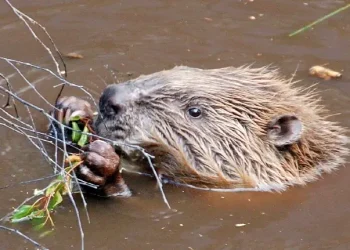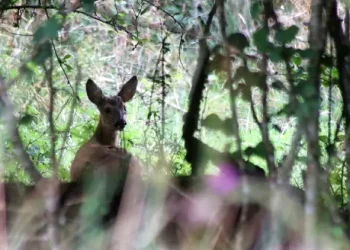A new era in forestry is upon us. Decades of research have culminated in a groundbreaking breeding programme to cultivate British-grown Douglas fir trees.
This initiative, a collaboration of leading scientists and government partners, promises to strengthen the UK’s timber industry while addressing climate resilience.
A New Generation of Resilient Trees
For over a century, Douglas fir has been a staple in British forestry. However, rising demand and reliance on imported seeds have highlighted the need for a locally adapted strain. The Conifer Breeding Cooperative, in partnership with Forest Research and the University of Oxford, has taken decisive action.
By selecting 240 superior trees from British plantations and experiments, they are creating a genetically improved generation of Douglas fir adapted to British conditions.
Sir William Worsley, Chair of the Forestry Commission, remarked,
“We rely too heavily on timber imports in the UK. If we are to strengthen our domestic supply, this type of science will play a huge role in the future.”
Why Douglas Fir?
Douglas fir is prized for its fast growth, exceptional timber quality, and ability to sequester carbon more rapidly than slower-growing species. Its timber is used in construction, reducing emissions by replacing non-renewable materials.
Cultivating resilient, homegrown trees ensures a sustainable timber industry while enhancing the UK’s fight against climate change.
The Science Behind the Breakthrough
This ambitious project involves state-of-the-art techniques to ensure success:
- Tree Selection: Experts selected 200 visually superior trees from existing plantations and 40 genetically superior specimens from long-term experiments.
- DNA Fingerprinting: For the first time in British forestry, a DNA marker array has been employed to map the genetic makeup of each tree. Richard Whittet, Head of Tree Breeding at Forest Research, stated, “Collaboration has enabled us to get things done on the ground and harness new technologies, such as the low-cost DNA marker array for quality assurance.”
These advancements guarantee quality and traceability, laying the foundation for resilient forests.
What’s Next?
Experts will propagate selected trees through grafting, placing cuttings in seed orchards. Within a few years, these orchards will yield seeds, which forest nurseries will cultivate to produce the first genetically improved British Douglas firs.
Project Partners and Funding
This initiative is backed by the Department of Environment, Food and Rural Affairs and executed by key partners, including:
- Conifer Breeding Cooperative
- Forest Research
- University of Oxford
- Forestart
The project also builds on trials established in the 1990s with European collaborators, including France, Germany, and Spain.
Benefits of a Homegrown Solution
Cultivating British Douglas fir offers numerous advantages:
- Reduced Dependence: Less reliance on imported seeds from the USA and France.
- Climate Resilience: Trees better suited to British weather conditions.
- Economic Growth: Strengthened domestic timber supply and reduced import costs.
- Carbon Sequestration: Faster-growing trees capture more carbon, aiding environmental goals.
Feature |
Benefit |
|---|---|
| Locally Adapted Strain | Increased resilience to UK conditions |
| Fast Growth | Enhanced timber yield and carbon capture |
| DNA Fingerprinting | Quality assurance and traceability |
The Bigger Picture
Forestry plays a crucial role in mitigating climate change and fostering biodiversity. Initiatives like this underscore the importance of investing in domestic tree breeding to secure a greener future.
As Sir William Worsley noted,
“There has never been a more crucial time to invest in domestic tree-planting.”
A Sustainable Legacy
The development of British Douglas fir trees is more than a scientific achievement; it’s a step toward self-reliance and sustainability. By reducing imports and bolstering local forestry, this programme supports the UK’s mission to become a clean energy superpower.
Sources: THX News, Forest Research & Forestry Commission.









